By Susan Hitchcock
Founder & Host Emerita of TLG Women in Leadership
Throughout my professional life which includes five decades, two full careers and multiple leadership roles, I’ve been both “mentee” and “mentor.” Today I’m focusing on many years as a mentor and reflecting on my experience which includes 100+ individuals, male and female, across a broad spectrum of types and stages of their careers. From that experience, in both formal and informal mentoring relationships and in both pre and post pandemic environments, I’d like to share four key points and take-aways.
Mentorship in a Virtual World
First let’s start with the latest environment: a more virtual world. My experience is that mentoring can be just as effective whether it’s in person or virtual via Zoom. There are caveats of course. I’ve recently been engaged as a mentor in a formal group mentoring program with four mentees in four totally different professional roles. The suggested plan was to have four group sessions this year which I changed to six, one every other month. I also offered six individual virtual sessions every other month. My take-away is that there are clearly common discussion points that can benefit everyone in the group sessions, but to have a significant impact either virtually or in person, a mentoring relationship needs to be tailored to each person. That has not changed in my opinion.
Commitment is Key
Another key point for me is that the mentor and mentee need to be committed. Of course some mentoring can take place with a one-time lunch, a glass of wine after work, etc. These are opportunities I refer to as “mentoring moments.” But if the mentoring relationship is expected to last a while, then the two participants should agree to some prep time (with a simple agenda for example) and some follow-up on specific action items. This type of commitment applies whether in the virtual or in person world.
What’s Changed in Mentoring
Two things that have changed in the last two years are how people are doing their work (work from home, hybrid, etc.) and the additional stress factors in their lives. From a mentoring perspective, these things need to be taken into account. It’s important that in the virtual world, the mentor listens even more carefully. Allowing the mentee to share what’s going on from a personal perspective may be critical to understanding what’s going on the professional side. In the past, the mentoring focus may have been all business, but I believe the “human factors” are equally important today in making career decisions.
Everyone Needs a Mentor
Lastly, this is a lesson past, present, and future – whether virtual or in person. Being mentored is – or should be – an important part of everyone’s development. At different milestones in their careers, mentees can learn from and be guided along their paths by different mentors. Sometimes a mentor needs to be an expert in a particular field. Other times the mentor needs to be a personal role model who looks like and/or shares a similar background with the mentee. Diversity of perspective, experience, ethnicity, etc. adds tremendous value to the mentoring relationship.
Susan Hitchcock Founder of Women in Leadership and The Age of SHEroes SusanHitchcock@turknett.com
